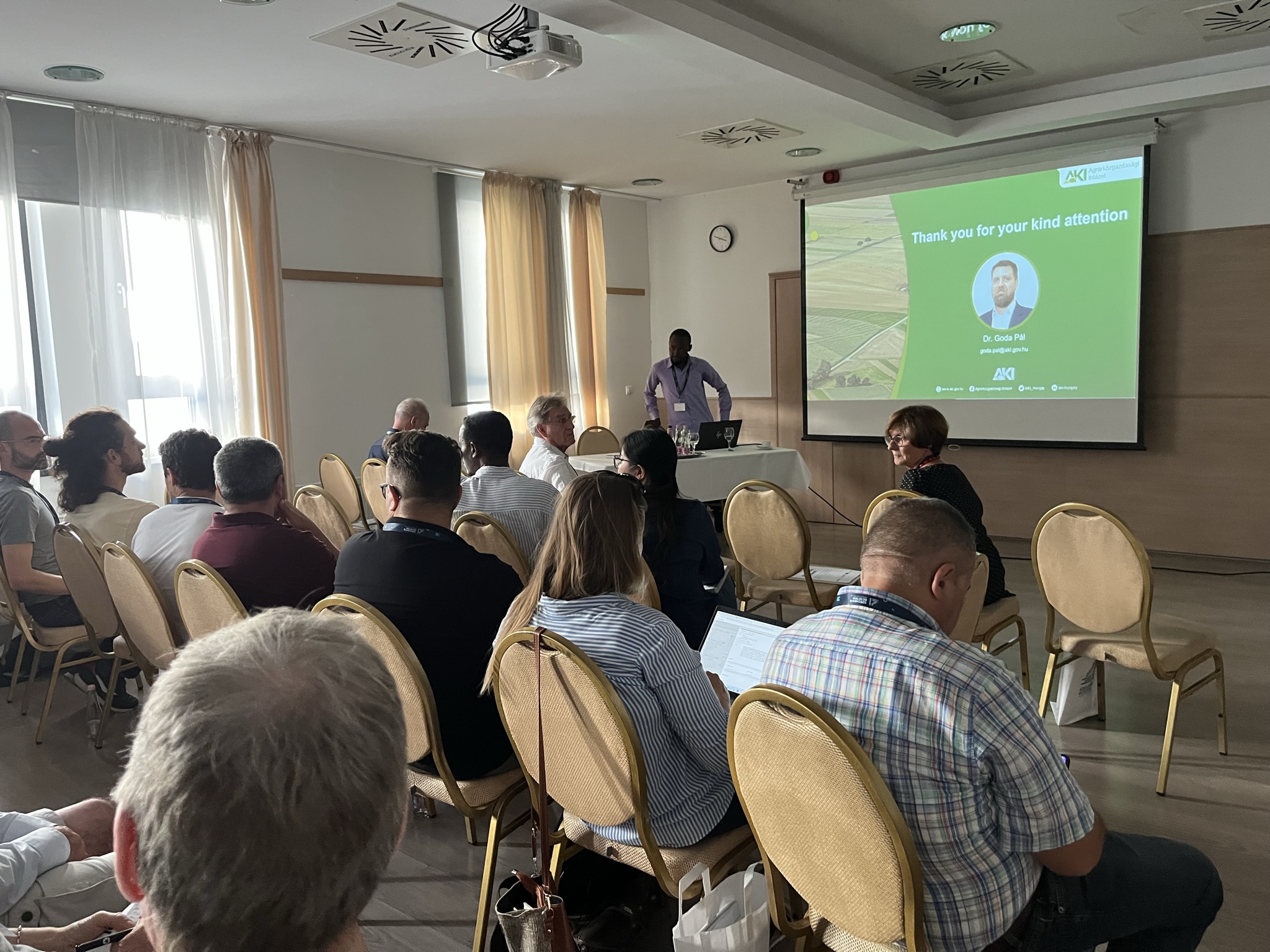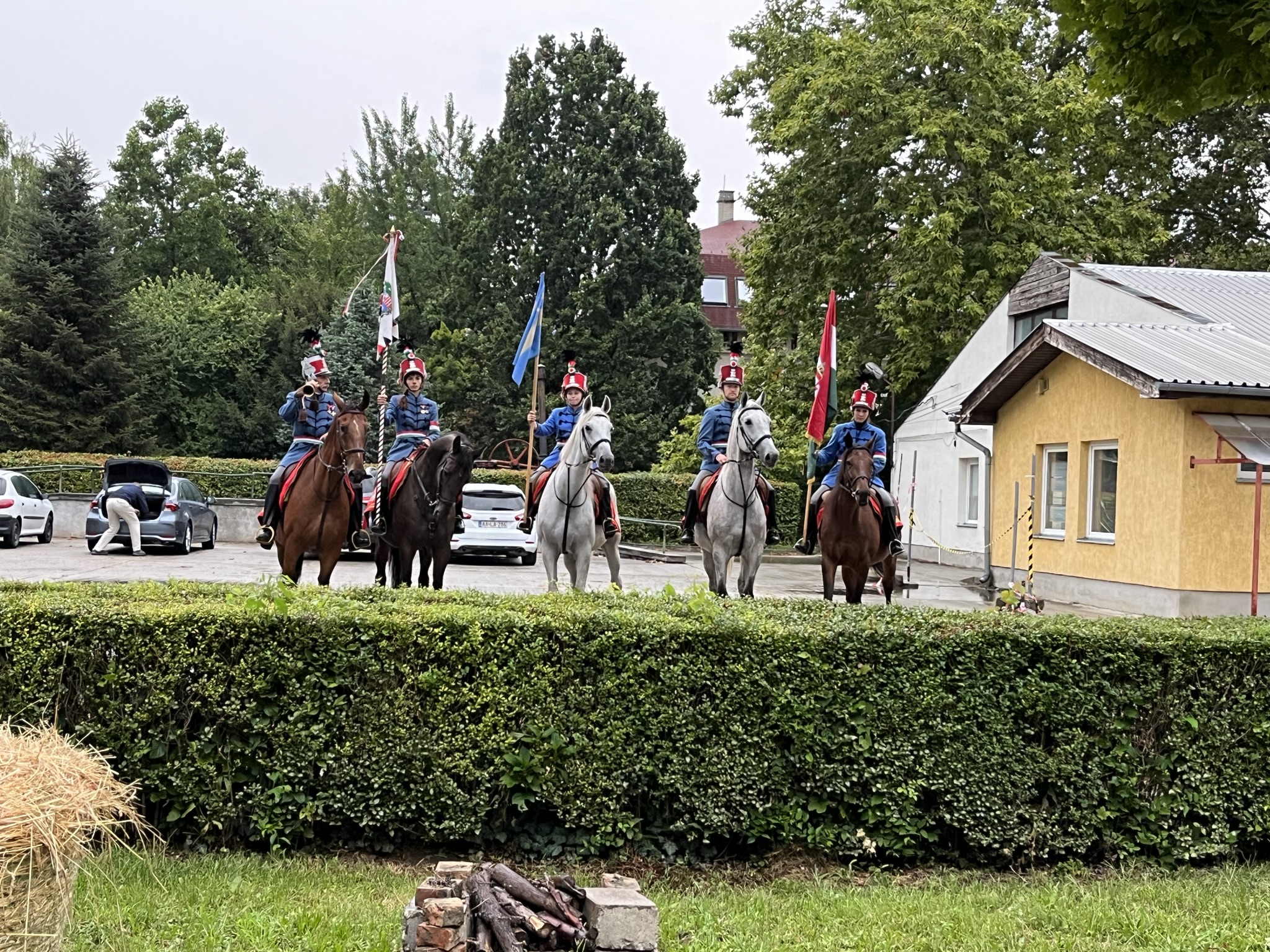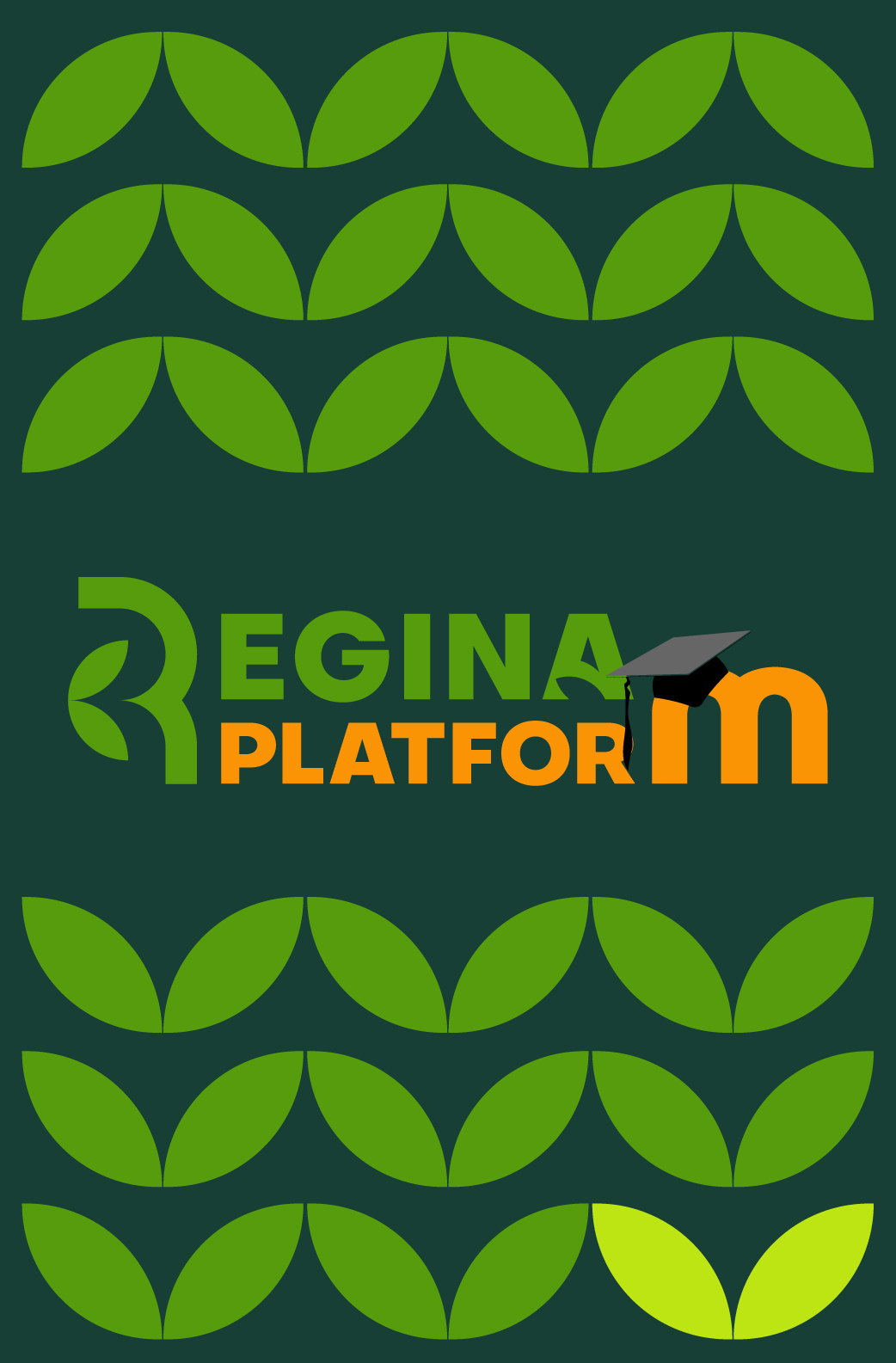Training Event
Training Event of REGINA
"Changing farming practices to address the climate crisis"
The Training Event of REGINA project has been incorporated into the 20th Summer Academy of Euracademy Association. Euracademy (as project partner in REGINA) has a long-standing tradition in adult education and summer academies, and this event has been benefited from the experience of 19 previous summer academies held in an equal number of different locations around Europe, on different themes related to sustainable rural development.
The event has been co-organised with Széchenyi István University, and was held in Győr (Hungary), between 27-31st August 2023. For four whole days, more than 35 participants from 9 different countries (experts, academics, students and practitioners) have been dealing with Regenerative Agriculture, contributing with their expertise to a wider understanding of the following topics.
The main focus of the Summer Academy and Training Event are grouped under three main topics:
1) Defining Regenerative Rural Development: why is regenerative development necessary, and what is the difference between regenerative and sustainable development?
2) Regenerative Agriculture: what it is and what are the different techniques? How can RA contribute to the mitigation of climate change? What are the benefits?
3) Education and Policy for RA: who needs to be educated? What can we learn from good practices across Europe? And what kind of policies are necessary?
Click here, if you wish to read the complete program of the event.
DAY 1: "Introduction to regenerative development and regenerative farming, addressing climate crisis"
The first day have been devoted to the general understandting of regenerative farming, by inviting keynote speakers and experts of the topic. Speakers have raised interesting topics for discussion, and after the presentations, participants worked in small groups to share their views and experiences. In the followings, you can have access to the single presentations:
Plenary session 1: Introcution to regenerative development and regenerative farming
Keynote speaker: Dr. Wolfgang Sturny: "Towards a climate and soil friendly regenerative agriculture of the future"
Keynote speaker: Prof. Neményi Miklós: "The criteria of sustainability, with particular emphasis on regenerative agriculture and its environment. The role and responsibilitiy of the individual."
Plenary session 2: Regenerative agriculture: critical issues
Wojtek Kniec: "Regenerative agriculture as a social phenomenon"
Goda Pál/Kennedy Mutua Ndue: "Life Cycle Assessment Perspective for Sectoral Adaptation to Climate Change. Case Study about Environmental Impact Assessment of Pig Production"
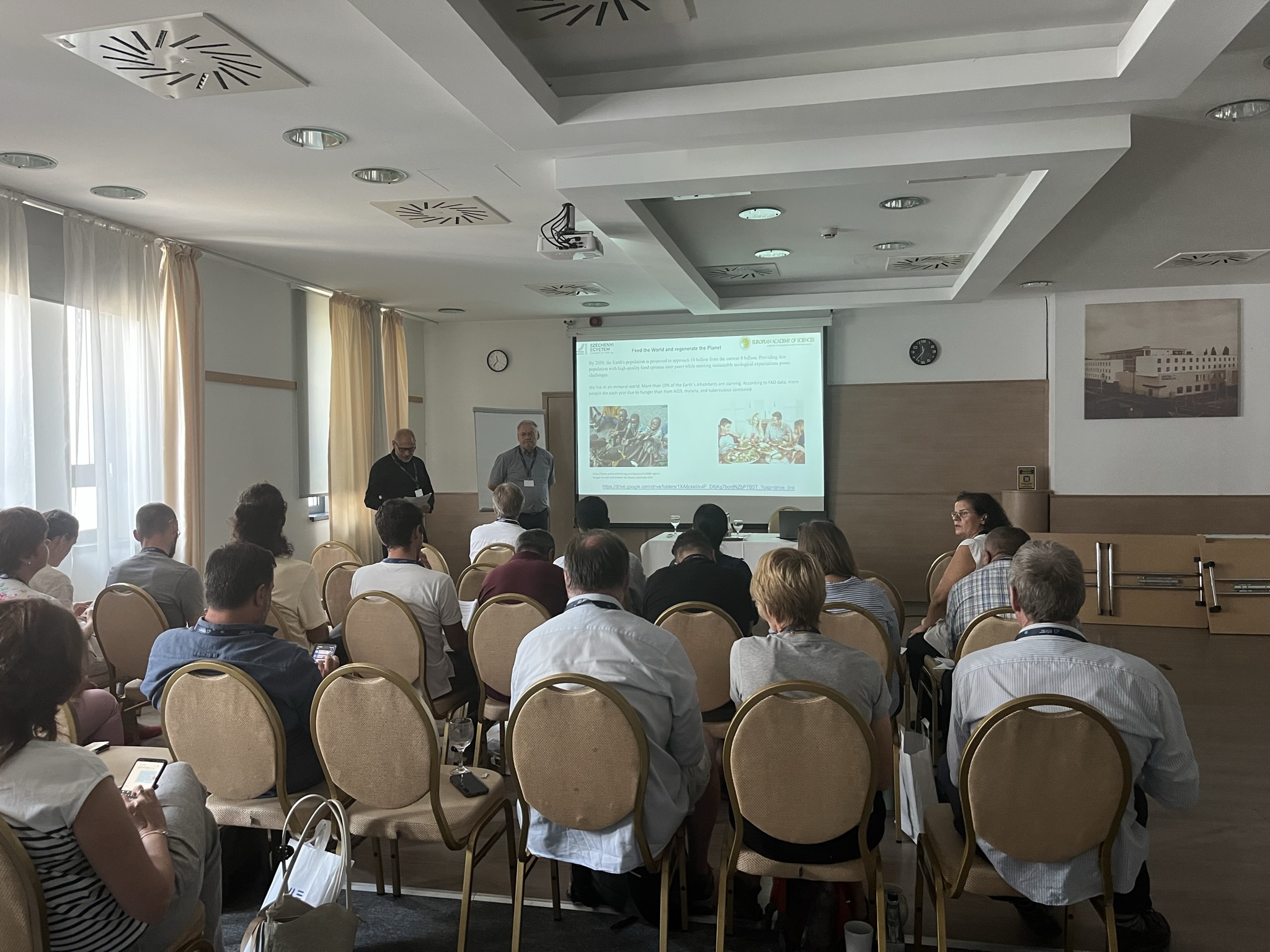
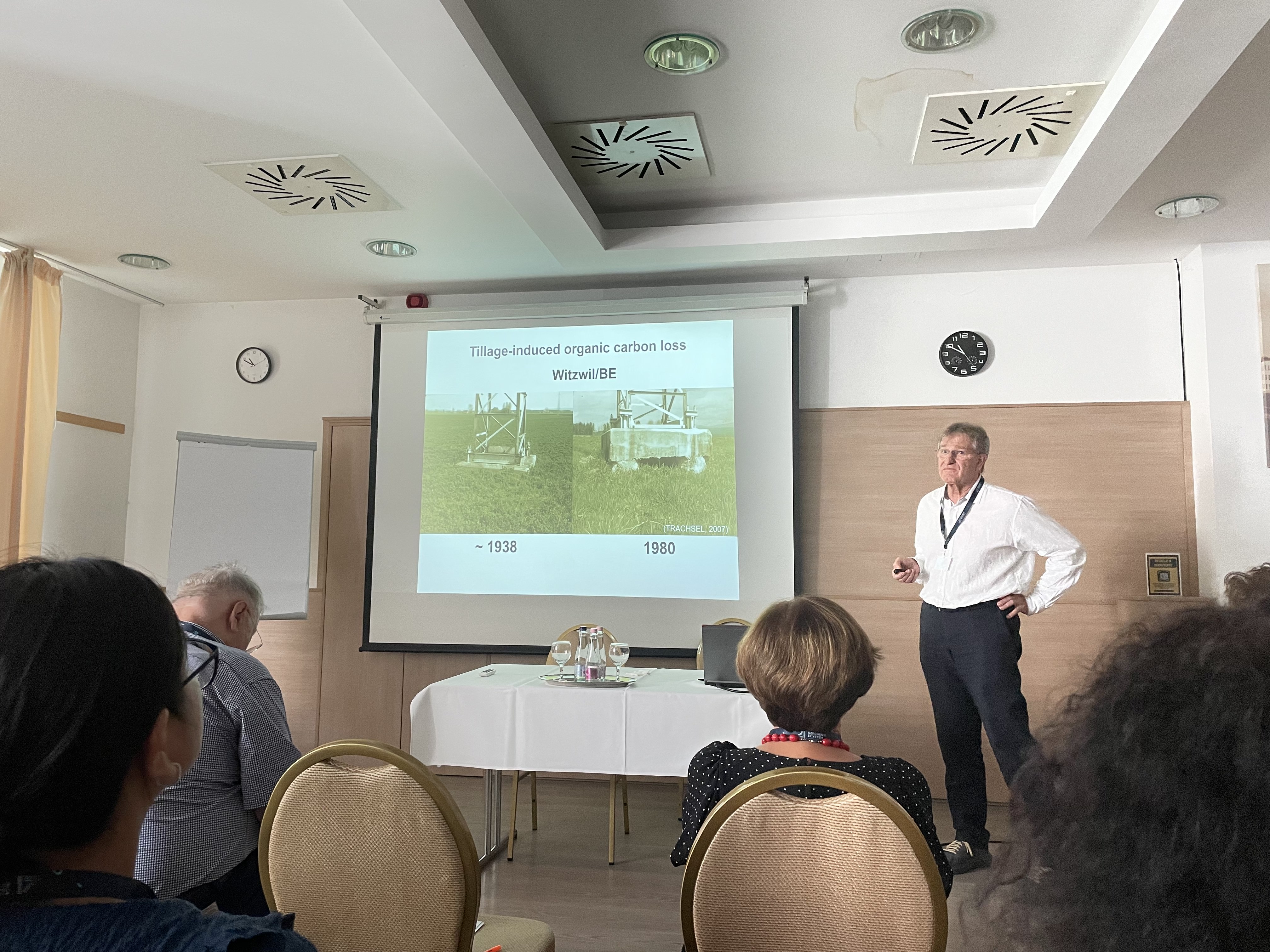
DAY 2: "The REGINA project and practical examples
The second day was dedicated to education, and the REGINA project results. Project partners contributed with introductory presentations, that was followed by the discussion on how to adapt the learning methodology to different educational enviornments. In the afternoon, farmers and practicioners presented their good practices, giving first-hand experiences on applying regenerative agriculture techniques. The second day have finished with a lovely cultural event in the presmises of the Veres Péter Secondary School, including a horse-riding show and some Hungarian folk dance.
Workshop 1: The REGINA project and Methodology
Honvári Patrícia: "Introduction to the REGINA project: aiming for sustainable agriculture and educational methodologies"
Demetris Mylonas: "Results of the REGINA transnational research"
Marco Napoli: "Course methodology: structure and content of the modules"
Beke Dóra: "Optional teaching methods for RA course"
Workshop 2: The REGINA project: Adaptation possibilities
Tamara Urbancic: "Integrating adaptation to climate change into the education of students"
Lara Resman: "Learning methodologies and aspects of RA in adult education: living
laboratories as a new integrative knowledge nexus for RA”
Workshop 3: Best practice examples
Gerard MacMahon: "Farming alongside nature on a commercial Irish dairy farm"
Gerard MacMahon: "Falm Walkthrough - video"
Lili Mahne: "Changing farming practices to address the climate crisis"
Panagiotis Papadopoulos: "Agroecological & Regenerative farming projects and best practices in Greece"
Vér András: "The role of demofarms in climate change mitigation. Implementation of the Climate Farm Demo project in Hungary"
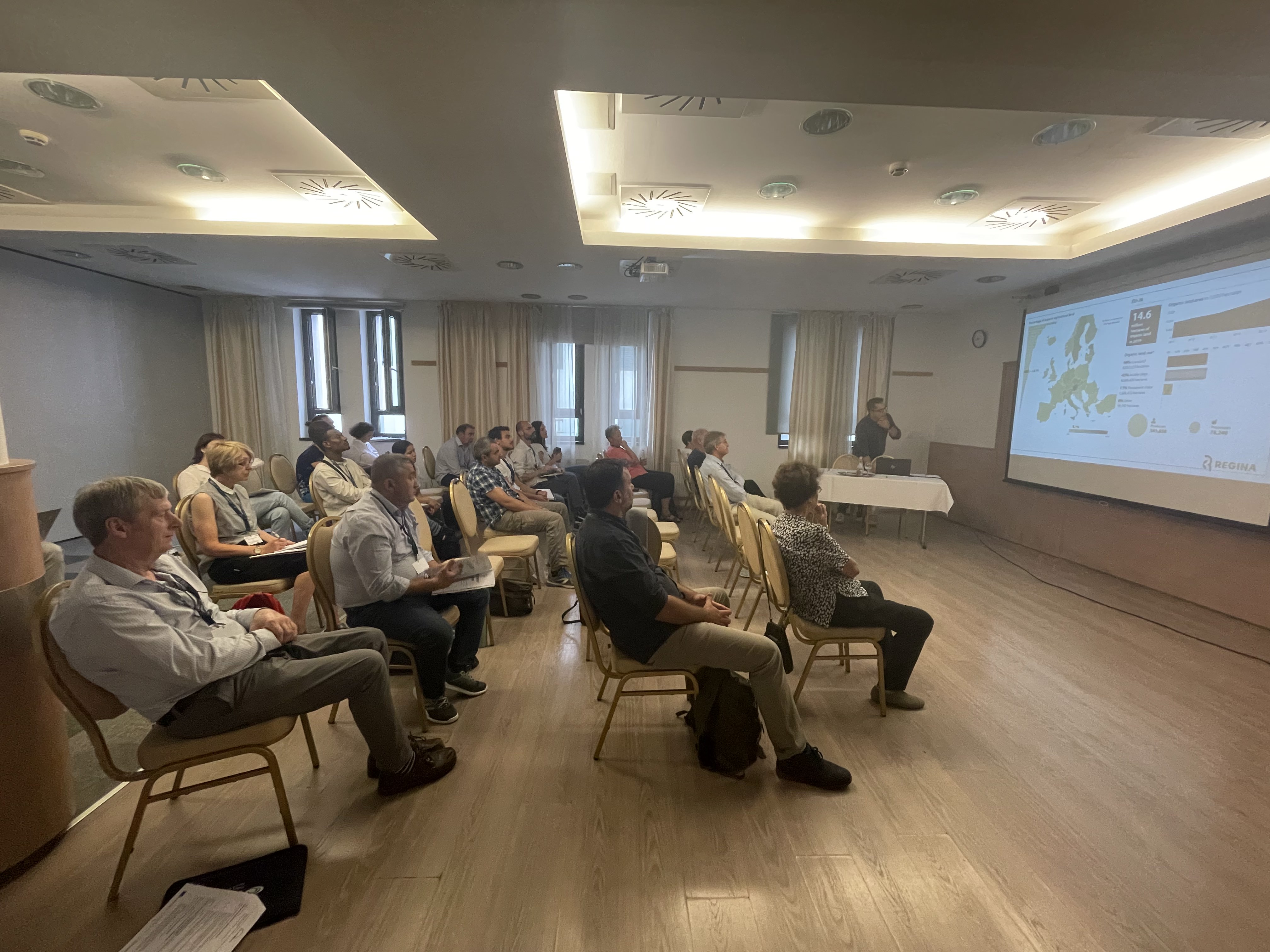
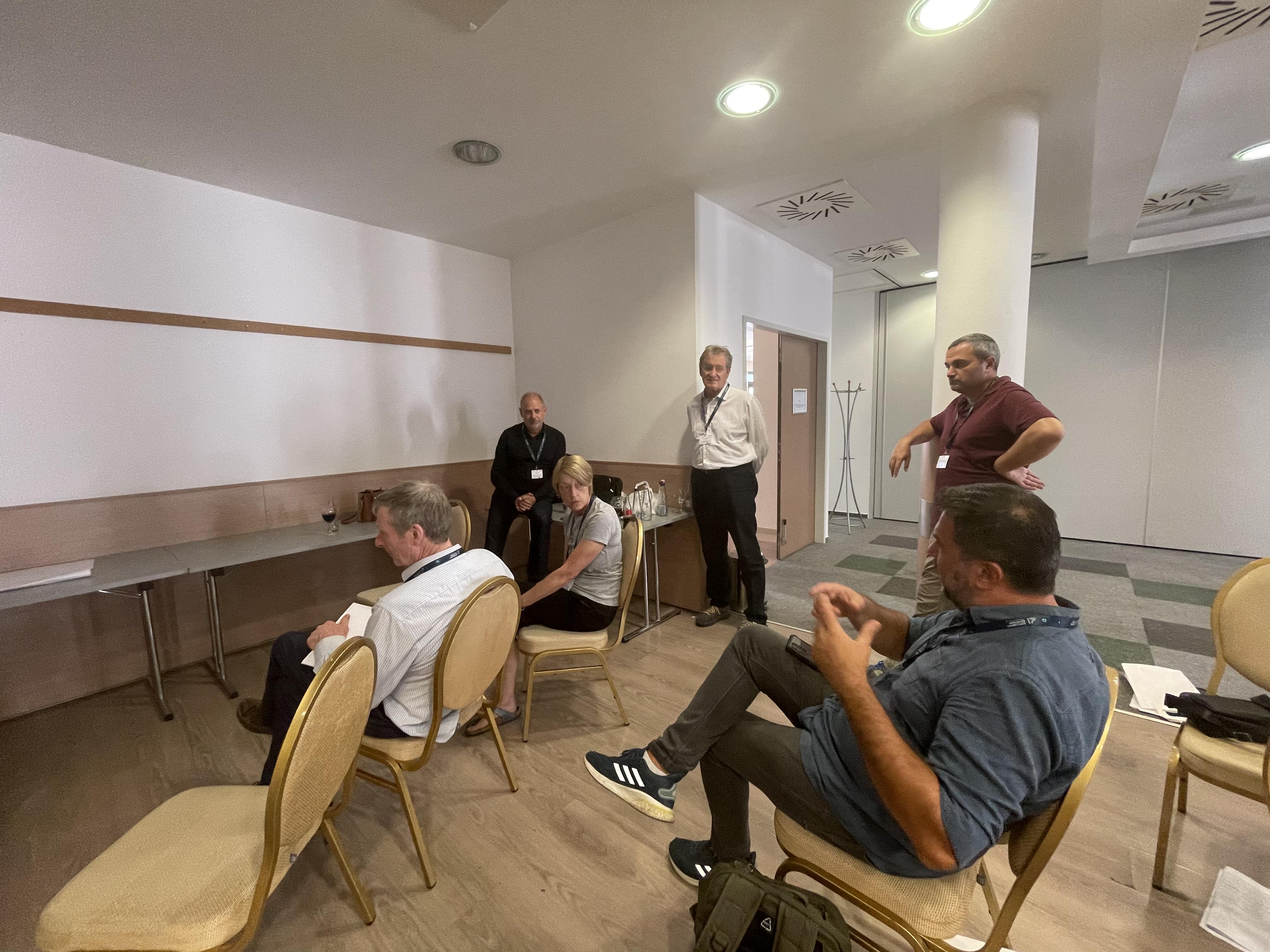
DAY 3: Study Tours
The third day was devoted to the study trips (field trips). Participants were divided into 3 groups, and visited altogether 9 farms, that serve as a good practice example of regenerative and sustainable farming. The participants visited the locations, shared their impressions and discussed with the farmers, how practices could be made better, more efficient and sustainable. During the study tours, a stronger emphasis was placed on “problem solving – finding solutions”, and a higher profile were given to the study visit investigations and greater importance to meetings with local communities.
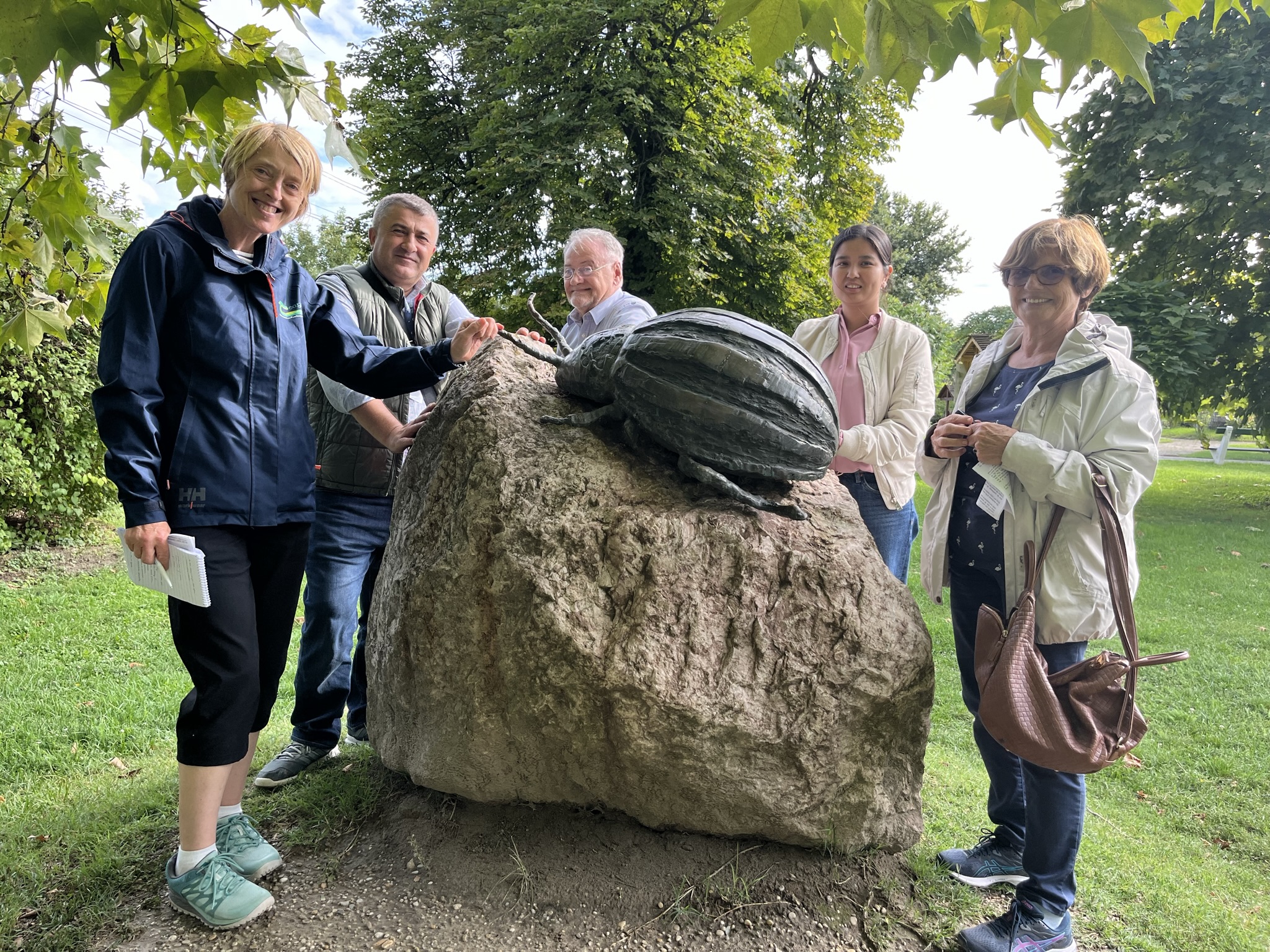
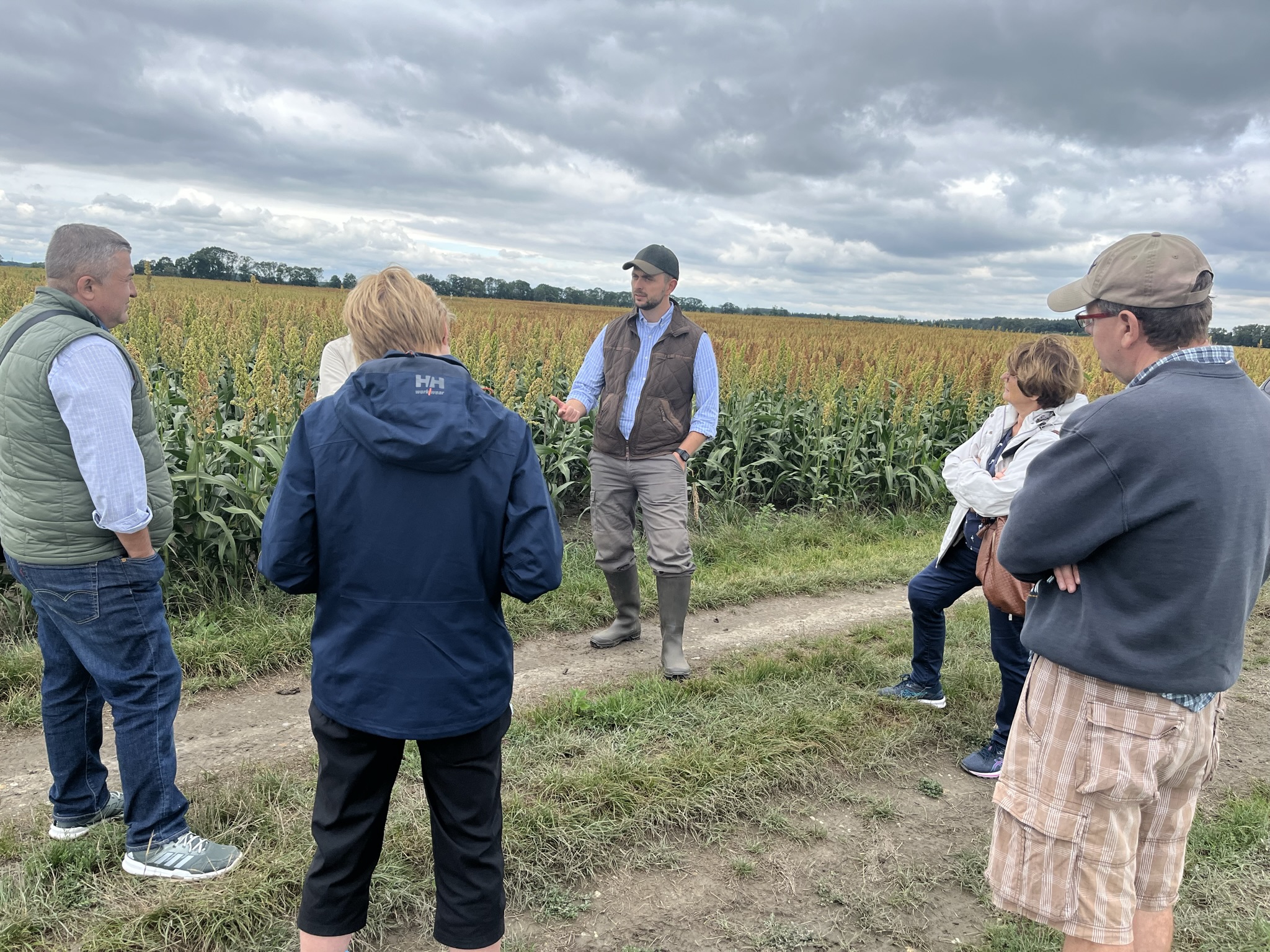
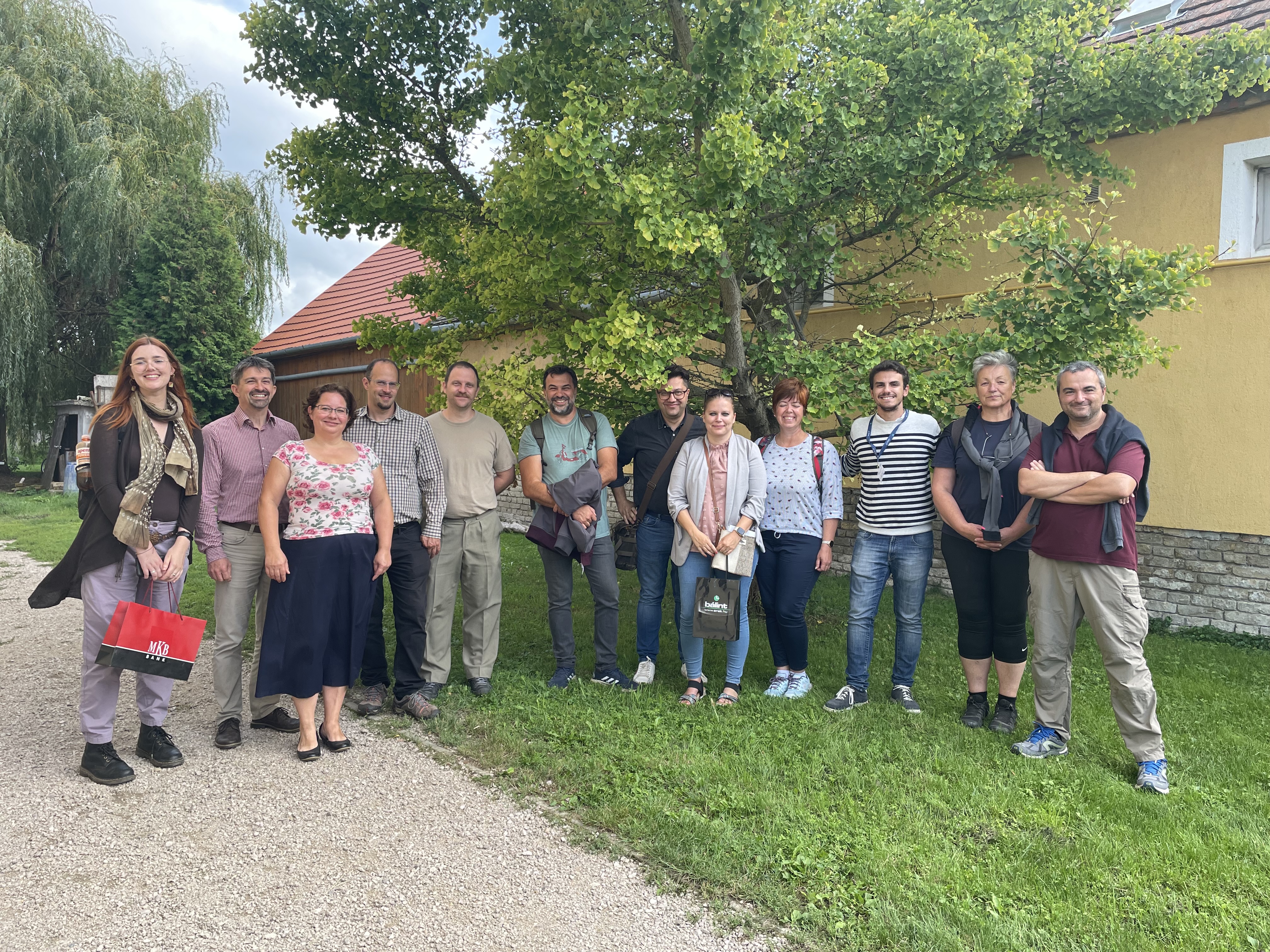
DAY 4: Study Tour Presentations & Evaluation
The last day was devoted to the study tour reports. The groups were invited to approach the study tour as a small real-life project, and propose solutions and further actions that can be also meaningful for the local stakeholders. The reports were presented by each group to the plenary of participants in the afternoon of 31st August.
The last element of the Training Seminar was the evaluation, where participants expressed their views on the organisation, their learning possibilities and gave valuable feedback on their experiences. The event closed with the award of diplomas, where all participants gained a written acknowledgement of completing the Training Seminar and Summer Academy.

The REGINA project (No. 2021-1-HU01-KA220-HED-000027629) was funded by the European Commission. The content of this website does not necessarily reflect the views of the European Commission.
Call 2021, KA220 – Cooperation Partnerships in Higher Education
The European Commission’s support for the production of the publications does not constitute an endorsement of the contents, which reflect the views only of the authors, and the Commission cannot be held responsible for any use which may be made of the information contained therein.

